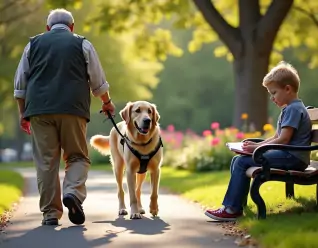University of Chicago Emotional Support Animal Policy



University of Chicago Main Takeaways:
-

Submit your Assistance Animal request to Student Disability Services (SDS) at least 60 days prior to the animal’s anticipated arrival.
-

Documentation from a licensed healthcare provider is required.
-

Assistance animals (also called emotional support animals) are only permitted in University housing, not in classrooms, labs, dining facilities, or other campus buildings.
-

Animals must have current vaccinations, annual clean bill of health from a licensed veterinarian, and Chicago licensing compliance.
-

Only one assistance animal per student will typically be approved, and approvals require annual renewal with updated documentation.
The University of Chicago is committed to reasonably accommodating persons with disabilities who require the assistance of animals. The University’s animal policy provides a framework for managing animals within the University community while maintaining a healthy work, learning, and research environment. Students with disabilities may request approval for assistance animals in University housing through Student Disability Services, which conducts individualized assessments to determine whether the animal is necessary to afford students equal opportunity to use and enjoy their living arrangements.
Legal Framework
The University of Chicago’s animal policy is governed by a comprehensive legal framework at the federal, state, and local levels. Understanding these laws helps clarify the different categories of animals and their permitted uses on campus.
Fair Housing Act (FHA)
The FHA requires housing providers to make reasonable accommodations for individuals with disabilities, including allowing assistance animals even when general pet policies prohibit animals. The accommodation must be necessary to afford the person with a disability equal opportunity to use and enjoy the dwelling. UChicago’s assistance animal approval process follows FHA guidelines by conducting individualized assessments of each request.

Americans with Disabilities Act (ADA)
Under the ADA, service animals, typically dogs trained to perform specific disability-related tasks, have broad access rights across campus facilities. However, the ADA specifically excludes animals that only provide emotional support or comfort from the definition of service animals. These animals fall under separate housing accommodation laws rather than the ADA’s public access provisions.

Section 504 of the Rehabilitation Act of 1973
As a recipient of federal funding, the University of Chicago must comply with Section 504’s prohibition against disability discrimination. This includes providing reasonable accommodations such as assistance animals in residential facilities when medically necessary. Section 504 works in conjunction with the FHA to ensure students with disabilities have equal access to University housing programs.

State & Local Laws
Beyond federal protections, Illinois state law and City of Chicago ordinances may provide additional protections for assistance animal owners. These local laws work alongside federal regulations to ensure individuals with disabilities have the right to reasonable accommodations in housing settings. The University’s policy reflects compliance with both federal mandates and applicable state and local disability rights protections.

Who Qualifies for an Emotional Support Animal
-
Assistance Animals (ESAs)
Students with documented disabilities may keep an assistance animal in University housing if it provides emotional support, well-being, or companionship that alleviates disability symptoms. These animals require no specialized training, can be various species (not just dogs), and need prior SDS approval. Access is limited to University housing only.
-
Service Animals
Service animals are dogs trained to perform specific disability-related tasks (guiding, alerting, retrieving, seizure response). They have broad campus access rights and may accompany owners throughout University property, except where health or safety is compromised. Registration with SDS is encouraged.
-
Assistance Animals (ESAs)
Students with disabilities may keep an ESA in their University housing if the animal is necessary to afford them an equal opportunity to use and enjoy campus housing. The relationship between the disability and the need for the ESA must be documented, and approval must be obtained from the ODS.
-
Service Animals
Students with disabilities may keep a Service Animal in their dormitory or rental unit, as well as other venues on campus, if the animal is trained to perform tasks directly related to the student’s disability. Service Animals do not require prior approval but must be registered with the Office of Disability Services (ODS).
Application Process for an ESA
Step 1: Submit Request and Documentation
Contact Student Disability Services (SDS) at least 60 days before your animal’s arrival. Submit documentation including:
- Letter from your licensed healthcare provider on professional letterhead
- Verification of disability status and functional limitations
- Explanation of how the animal serves as an accommodation and why it’s necessary for equal housing access
- SDS Accommodation Request Form
Step 2: Review and Evaluation
SDS conducts an individualized assessment to determine if you have a qualifying disability and whether the animal request is reasonable. The office may consult with University medical consultants and can approve, deny, or request additional information. Denial may occur if the animal creates undue burden or poses direct threats.
Step 3: Approval and Agreement
Upon approval, you’ll receive an accommodation letter to provide to Housing & Residence Life. You must sign an Assistance Animal Agreement after reviewing the policy with SDS and Housing staff. Annual renewal is required each academic year with updated documentation and new signed agreements.

Responsibilities of ESA Owners
- Designate an emergency handler and backup (both off-campus residents) who can remove your animal promptly if you’re unable to provide care.
- Maintain your animal’s health with current vaccinations, pest prevention, annual vet exams, and City of Chicago licensing. Provide documentation upon request.
- Keep your animal leashed or in a carrier on outdoor University property. Animals must be housebroken and under your control at all times.
- Immediately clean and dispose of all waste in sealed plastic bags in outdoor trash receptacles.
- You’re solely liable for all animal-related damages, injuries, cleaning costs, and property repairs. Maintain renter’s insurance with liability coverage.
- Contain your animal during Facilities staff visits. Include animal notification in all service requests.
Conflicting Needs and Resolutions
Students affected by assistance animals (allergies, asthma, PTSD, phobias) should contact Housing & Residence Life or SDS immediately. The University of Chicago conducts individualized assessments to balance competing needs and will work expeditiously to resolve conflicts while accommodating all parties. Students may request formal review if satisfactory agreements cannot be reached through the standard conflict resolution process.
Important Considerations
- ESA’s are restricted to University housing only—prohibited in classrooms, labs, dining facilities, common areas, and other campus buildings.
- Only one assistance animal per student, evaluated case-by-case with mandatory annual renewal.
- Study abroad with assistance animals requires advance SDS approval and may not be feasible if housing arrangements are fundamental to the program.
- Pets (except fish in tanks ≤10 gallons) are prohibited in University housing.










